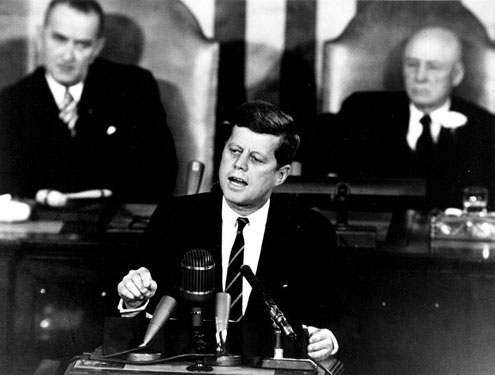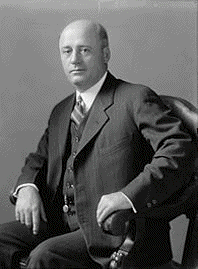No one can say for certain what Sam Rayburn would think of the changes that have occurred across the political landscape of the nation he served 48 years as a Congressman, or in his beloved 4th District, for that matter.
But, even 52 years after his death on November 16, 1961, it is easy to see how people in Fannin County still feel about a poor kid who grew up scraping out a living on a hardscrabble farm south of Windom, Texas and went on to log the longest tenure in U.S. history as Speaker of the U.S. House of Representatives.
And perhaps, even as "Mr. Sam" put down his gavel 50 years ago, the seeds of acrimony that now mar politics at every level were being planted.
Rayburn had been a bridge between the North and South, not just for the Democratic Party but for a nation addressing civil rights, rural electrification and the need for better transportation. Here was a Texan who was a voice for rural America and an advocate for farm-to-market roads, yet Rayburn refused to sign the Southern Manifesto opposing racial integration in public places. His young protégé, LBJ, refused to sign, as well. Rayburn had backed Lyndon Johnson for the 1960 presidential bid, but once the Democratic nod went to John F. Kennedy, Rayburn had no trouble finding common ground with JFK.
When one of the most daring declarations in the history of mankind was made -- When JFK told a joint session of Congress on May 25, 1961 that the U.S. would embark on a manned mission to the Moon before the end of the decade -- Sam Rayburn and LBJ weren't just sitting behind President Kennedy; they had his back in the debate that ensued.

When illness forced Rayburn to step down as Speaker, Democrat John McCormack took the reins of the House as Speaker pro tem, but a change was brewing.
While McCormack was born in Brookline, Massachusetts and JFK was born in nearby Boston, the two men found common ground elusive. McCormack was viewed as a cigar-chomping stodgy conservative when Rayburn had been a visionary progressive-conservative who shared many of Kennedy's ideals.
In fact, the staff at Sam Rayburn Library discovered the following headline in a major newspaper when failing health forced Rayburn to step down: "Kennedy Foe to Replace Rayburn."

In today's era, when all-too-predictable, partisan bickering has taken a staggering toll from the national scene all the way down to the local level, perhaps the example Democrat Sam Rayburn and Republican Joe Martin gave their country deserves a long, hard look.
During the '40s and '50s, when the Democrats controlled the House, Rayburn would be named Speaker and occupy the traditional Speaker's office with a commanding view over what he had once called "the greatest lawmaking body in the world."
When the Republicans controlled the House, Martin would be named Speaker and Rayburn would occupy a somewhat less prestigious office relegated to the Minority Leader.
After the men had swapped offices a couple of times, Democrats came back into power in 1955.
According to the late H.G. Dulaney, Speaker Rayburn walked over to his friend and said, "Joe, we've changed offices enough."
Speaker Rayburn spent the next four years working out of what should have been the Minority Leader's office as a sign of respect for his friend from the other side of the aisle.
"They did what was best for the country," Dulaney remarked, "not the party."
It would seem only fitting to end this article with the words of someone else who knew Sam Rayburn -- and H.G. Dulaney -- very well.
"The Speaker's birthday! January 6th was long a date that I always circled on my Washington calendar. It is still circled in my heart." -- Lady Bird Johnson -- 1982